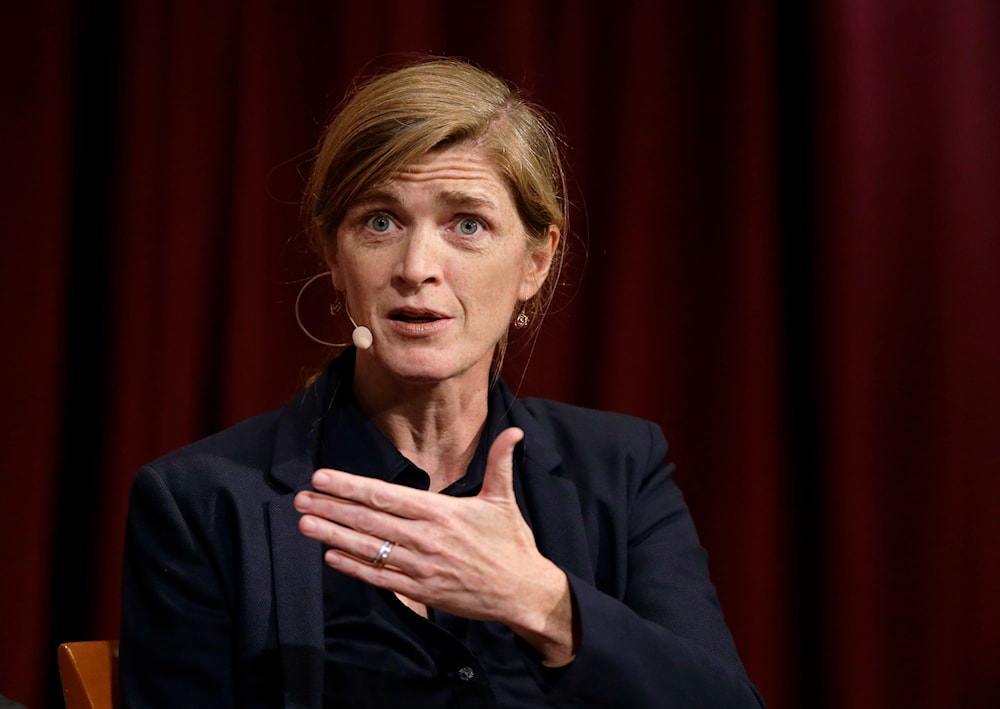USAID’s Samantha Power confronted by staff on Gaza
A prominent advisor to Biden, Power faced public criticism over the administration's policy, with one employee asserting that it has "left us unable to be moral leaders."
-

Samantha Power, former US Ambassador to the United Nations, addresses an audience, on Monday, October 16, 2017. (AP)
On Thursday, The Washington Post (WP) reported that Samantha Power, the head of the US Agency for International Development and a globally recognized scholar on genocide, faced criticism from current and former USAID employees. This occurred during a public event on Tuesday, where they questioned her position on the Gaza war and her involvement in the contentious US policy.
According to the American newspaper, Power, a senior advisor to US President Joe Biden, was confronted by her employees who stressed that "the US-funded genocide in Gaza has really left us unable to be moral leaders on climate change and all the other pressing development and humanitarian issues that those of us who work at USAID care so much about."
The report further detailed that Power faced challenges from both current and former agency employees who questioned her stance on the aggression in the Gaza Strip and her alleged involvement in divisive American policies.
Similar to other members of Biden's National Security Council, Power is responsible for overseeing an agency that is internally divided concerning Washington's military support for the Israeli aggression on Gaza and its reluctance to call for a cease-fire.
'You should resign and speak out'
Agnieszka Sykes, a global health specialist who recently departed from her position at the US Agency for International Development, said, "You wrote a book about genocide, and you still work in the administration. You should resign and speak out."
She interrupted Power's speech in Washington on climate change and natural disasters, invoking Power's book "A Problem from Hell."
The book, as the report highlighted, condemns US inaction in the face of numerous atrocities from Armenia to Rwanda, spanning several presidential administrations.
The WP added that the public confrontation of Power by her employees reflects her extensive work on the subject and her organization's obligation to address the suffering of distressed Gazans facing shortages of food, water, and medicine.
This comes amid a growing wave of support for Palestine within American states, aligning with the escalating political divide in the US over the controversial American military backing of "Israel" and its genocidal acts.

 2 Min Read
2 Min Read








